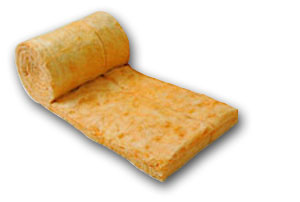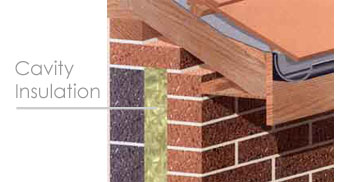Energy Saving Tips - Insulation
Insulation Efficiency Improvement
Reducing the amount of fuel you use for heating can often be achieved by insulating your home. Good insulation will keep the heat in the building and drafts and cold out. A lot of heat escapes through doors, windows, walls and the roof of a house. There are a number of cheap and easy measures that can make your home dryer and warmer. For example, if your home has wooden floors, you can fill gaps in floorboards and skirting with newspaper, beading or sealant, and you can eliminate draughts and wasted heat by fixing a brush or seal to your outer doors.
Loft Insulation
The most effective way to insulate your home is to insulate your loft. Most houses already have some loft insulation, but the energy savings will depend on how thick the insulation is. The recommended level of thickness for loft insulation is now a minimum of 100mm deep, but ideally should be between 200mm and 250mm. Loft insulation should be allowed to retain its natural thickness and not be compressed, as this will reduce its insulation value.
Hot Water Tank Insulation
You can also put insulation or lagging around a hot water cylinder and pipes
to retain heat. Again, your cylinder may already have a jacket fitted, but
by fitting a new more efficient jacket you may improve your fuel savings.

Cavity Wall Insulation
If the outside walls of your house are cavity walls, insulation can be added
in the cavity (the space between the inner and outer part of your exterior
wall). If your exterior walls are solid, you can protect the exterior with
render or cladding which will also weatherproof your home. This work is usually
carried out by a specialist contractor.

It is possible to carry out many of the general insulating measures yourself with good advice from a local builders merchant or DIY store. Before you decide to go ahead with any home insulation, it may be useful to contact your local Energy Efficiency Advice Centre). They can provide information about the best products for the job, and advice about where and how to insulate successfully. They will also give you important information about ventilation when installing insulation. The local Energy Efficiency Advice Centre can also provide you with a list of approved energy efficiency insulation installers if you would prefer to have the job done by a professional. If you are a private tenant, your landlord may be prepared to insulate the property.
If you are a housing trust, housing association or local authority tenant, you can ask your landlord what measures they are taking to promote energy efficiency in their housing stock. All local housing authorities are obliged by law to operate some sort of energy efficiency scheme. You should not undertake any major work on any property you rent without first obtaining the permission of your landlord.